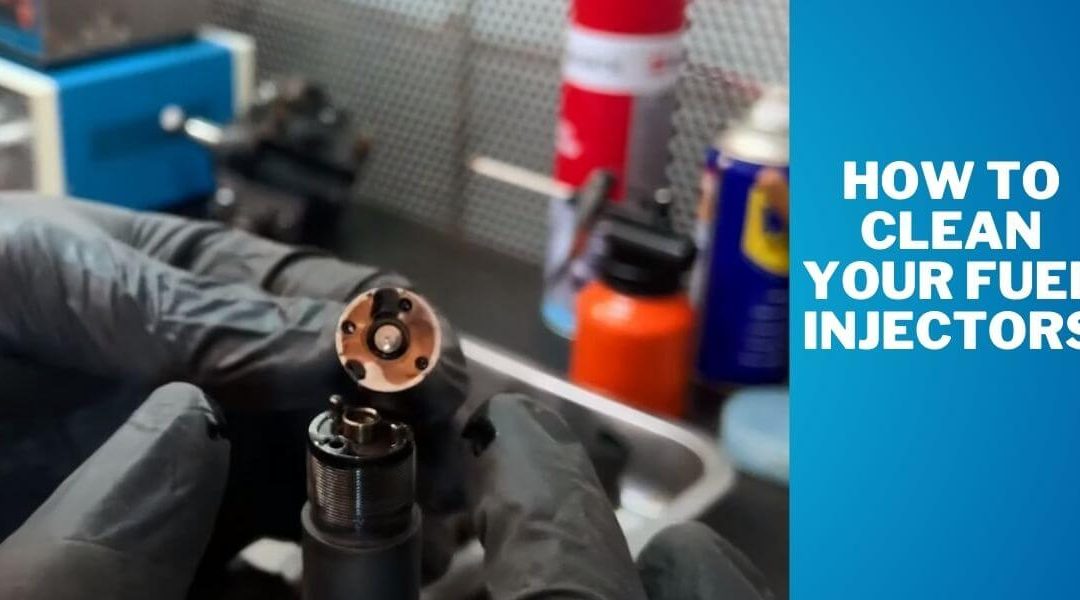Last Updated on August 28, 2023 by Mark S. Taylor
Fuel injectors play a crucial role in the efficient functioning of an internal combustion engine. Over time, these injectors can become dirty and clogged, leading to a decrease in engine performance and fuel efficiency. While the traditional method of cleaning fuel injectors involves removing them from the engine, there are alternative methods that can effectively clean them without the need for removal. In this article, we will explore various techniques to clean fuel injectors without removing them, providing a step-by-step guide and essential tips for the process.
Introduce the topic by highlighting the importance of clean fuel injectors and the impact they have on engine performance and fuel efficiency.
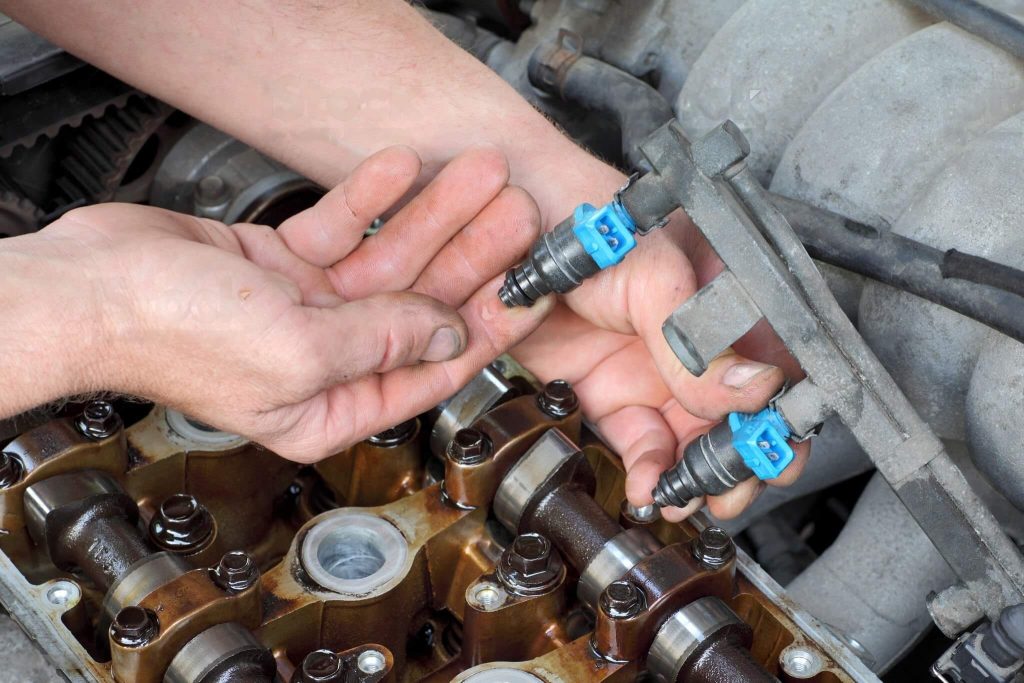
Contents
Understanding Fuel Injector Cleaning
Fuel injectors play a crucial role in the overall performance of your vehicle’s engine. Over time, these injectors can become clogged with dirt, debris, and carbon buildup, leading to a decline in fuel efficiency and power. Understanding fuel injector cleaning is essential to maintain optimal performance and avoid potential issues with your engine.
Importance Of Clean Fuel Injectors For Optimal Performance
Better fuel efficiency: Clean fuel injectors ensure that the fuel is properly atomized and distributed into the engine cylinders, resulting in improved fuel efficiency and lower emissions.
Enhanced engine performance: Clogged fuel injectors can disrupt the fuel-air mixture ratio, leading to reduced engine power and acceleration. Cleaning the injectors helps restore the optimal fuel flow and allows the engine to perform at its best.
Prevents engine misfires: When the fuel injectors are clogged, they may fail to deliver the right amount of fuel to the cylinders, causing engine misfires. Cleaning the injectors helps prevent these misfires and ensures smooth engine operation.
Extends engine lifespan: Clean fuel injectors promote better combustion, reducing the strain on other engine components. This can help prolong the lifespan of your engine and prevent costly repairs down the line.
Signs That Your Fuel Injectors May Need Cleaning
- Rough idle: If your engine idles unevenly, shakes, or feels rough when at a standstill, it could be a sign of clogged fuel injectors.
- Decreased fuel efficiency: If you notice a sudden drop in your vehicle’s fuel efficiency despite normal driving habits, it may indicate that the fuel injectors are clogged and not delivering fuel efficiently.
- Engine misfires: Engine misfires occur when the fuel injectors fail to provide the proper amount of fuel. This can result in a noticeable loss of power and a rough-running engine.
- Poor acceleration: Clogged fuel injectors can affect the engine’s ability to accelerate smoothly, causing sluggishness or hesitation when you press the gas pedal.
- Increased emissions: When fuel injectors are dirty, the fuel-air mixture can become imbalanced, leading to increased emissions of pollutants such as carbon monoxide and nitrogen oxides.
Common Causes Of Fuel Injector Clogging
- Low-quality fuel: Using low-quality or contaminated fuel can contribute to the buildup of deposits that clog the fuel injectors.
- Inadequate fuel filtration: A malfunctioning or clogged fuel filter can allow dirt, debris, and contaminants to enter the fuel system, eventually leading to clogged injectors.
- Carbon buildup: Over time, carbon deposits can accumulate on the fuel injectors, impeding their proper functioning.
- Fuel additives: Certain fuel additives may contain ingredients that can leave behind residues and contribute to injector clogging.
- Aging or faulty injectors: As fuel injectors age or develop faults, they become more susceptible to clogging.
Diy Fuel Injector Cleaning Methods
Fuel injectors play a crucial role in maintaining the performance and efficiency of your vehicle’s engine. Over time, these fuel injectors can become clogged or dirty, leading to reduced fuel efficiency and potential engine issues. Fortunately, there are various DIY methods available to clean your fuel injectors and restore their optimal functioning.
In this section, we will explore three popular methods: using fuel injector cleaning kits, using fuel system cleaners effectively, and utilizing vinegar as a homemade fuel injector cleaner.
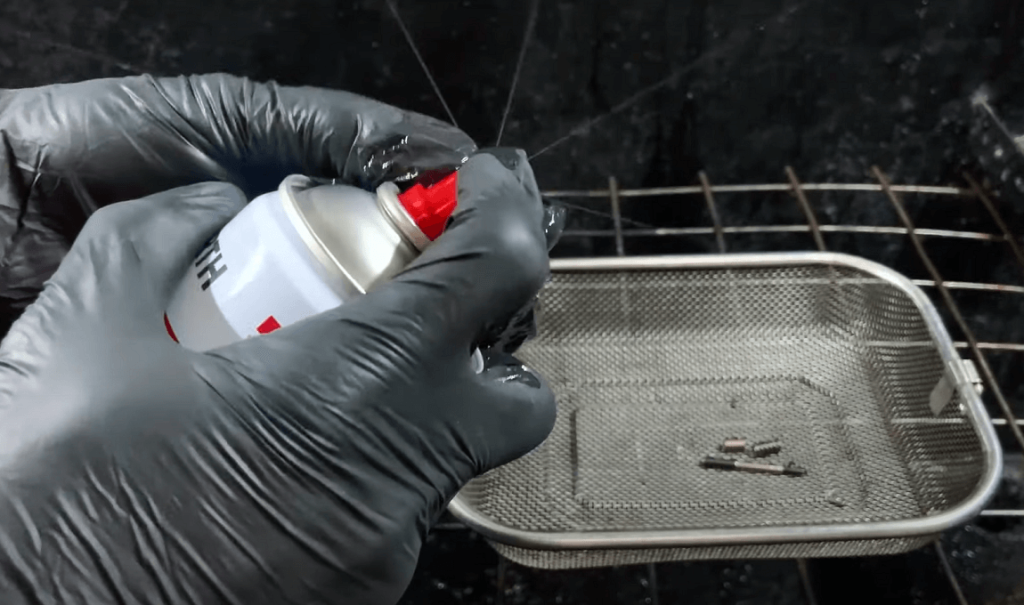
Step-By-Step Guide To Using Fuel Injector Cleaning Kits:
- Start by locating the fuel injector rail in your vehicle’s engine compartment.
- Carefully remove the fuel pressure regulator vacuum hose.
- Connect the cleaning kit’s canister to the fuel rail inlet valve.
- Open the cleaning kit valve and allow the cleaning solution to flow into the fuel injectors.
- Let the cleaning solution sit for the recommended period, as specified in the cleaning kit instructions.
- After the designated time, start your vehicle and rev the engine a few times to help flush out any debris and cleaning solution.
- Finally, reattach the fuel pressure regulator vacuum hose and ensure it is secure.
How To Use Fuel System Cleaners Effectively:
- Find a high-quality fuel system cleaner that is compatible with your vehicle’s engine.
- Park your vehicle in a well-ventilated area and turn off the engine.
- Pour the recommended amount of fuel system cleaner into your vehicle’s gas tank.
- Refill the gas tank to its recommended level.
- Start the engine and let it idle for a few minutes to allow the cleaner to mix with the fuel.
- Take your vehicle for a drive, preferably on the highway or an open road, to ensure the cleaner circulates throughout the fuel system.
- Repeat this process periodically as recommended by the fuel system cleaner manufacturer.
Using Vinegar As A Homemade Fuel Injector Cleaner:
- Mix equal parts of white vinegar and distilled water in a container.
- Disconnect the fuel injector’s fuel supply line.
- Attach a hose to the injector’s inlet port and place the other end in the vinegar mixture.
- Turn on the vehicle’s ignition to activate the fuel pump. This will draw the vinegar solution into the fuel injectors.
- Allow the solution to sit in the injectors for around 15 minutes.
- Disconnect the hose and reconnect the fuel supply line.
- Start your vehicle and let it idle for a few minutes to flush out any remaining vinegar solution.
Regularly cleaning your fuel injectors using these diy methods can help maintain your vehicle’s performance and fuel efficiency. However, it’s crucial to follow the specific instructions provided with each method to ensure safe and effective cleaning. With these techniques, you can keep your fuel injectors in top-notch condition, prolonging the lifespan of your vehicle’s engine and enjoying a smoother driving experience.
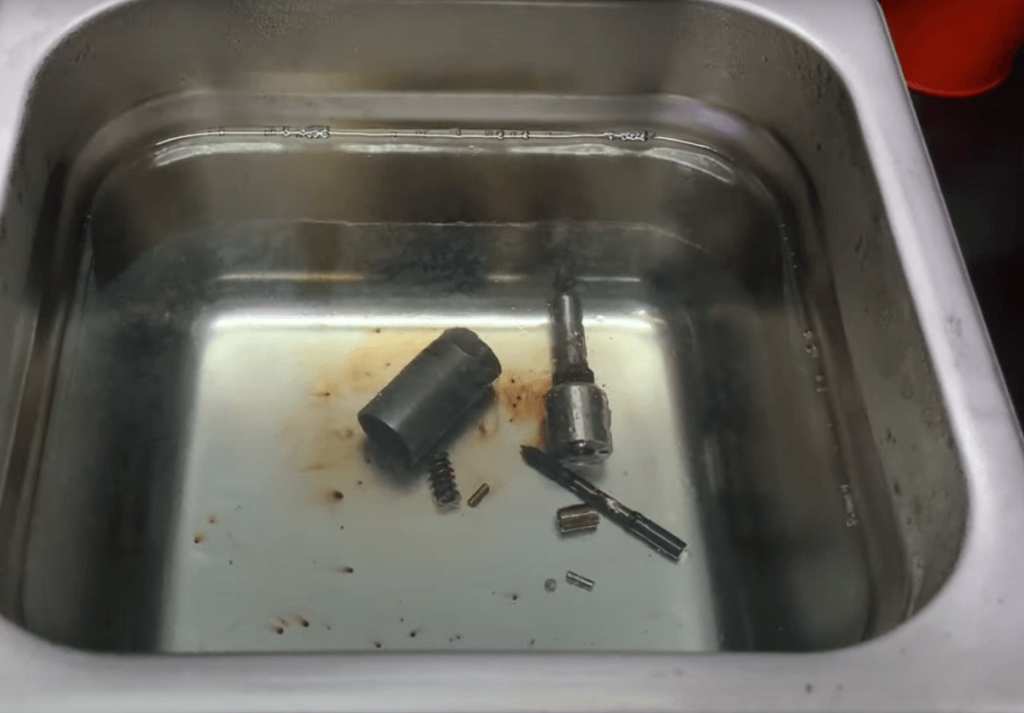
Professional Fuel Injector Cleaning Services
Fuel injector cleaning is an essential maintenance task for your vehicle, as it helps keep the injectors functioning optimally and ensures proper fuel delivery. While there are various diy methods available, sometimes it is best to leave this task to the professionals.
Here, we will explore the benefits of professional fuel injector cleaning, discuss how it is done, and provide tips for choosing the right service provider.
Benefits Of Professional Fuel Injector Cleaning:
- Thorough cleaning: Professional fuel injector cleaning services use specialized equipment and solvents to thoroughly clean the injectors, removing any built-up deposits or contaminants that may hinder their performance.
- Improved fuel efficiency: By removing deposits and obstructions, professional cleaning helps restore the fuel injectors’ efficiency, leading to better fuel combustion and improved mileage.
- Enhanced engine performance: Clean fuel injectors ensure a precise and consistent spray pattern, which results in smoother engine operation, reduced misfires, and improved power delivery.
- Reduced emissions: When the fuel injectors are clean, fuel is atomized more effectively, leading to better combustion and reduced emissions of harmful pollutants.
How Fuel Injector Cleaning Is Done By A Professional:
- Initial assessment: The service provider will inspect the fuel injectors to determine their condition and identify any potential issues.
- Ultrasonic cleaning: This method involves placing the injectors in a specialized cleaning solution and subjecting them to high-frequency sound waves. The vibrations dislodge deposits, ensuring a thorough cleaning process.
- Flow testing: After cleaning, each injector is flow tested to ensure that it sprays fuel evenly and at the correct pressure. This step helps identify any remaining issues and ensures optimal performance.
- Reassembly and installation: Once the injectors are cleaned and tested, they are reassembled, and the service provider ensures proper installation back into the vehicle.
Choosing The Right Service Provider For Fuel Injector Cleaning:
- Reputation and experience: Look for a service provider with a good reputation and extensive experience in fuel injector cleaning. Reading customer reviews and seeking recommendations can help you make an informed decision.
- Certifications: Consider choosing a service provider certified by recognized automotive organizations. These certifications indicate that they adhere to industry standards and follow proper cleaning procedures.
- Warranty: Check if the service provider offers a warranty on their fuel injector cleaning service. A warranty provides peace of mind and shows that the provider stands behind their work.
- Additional services offered: Some service providers may offer additional services like fuel system inspections or maintenance checks. Opting for a provider that offers a complete package can save you time and potentially identify other areas that require attention.
By seeking professional fuel injector cleaning services, you can ensure that your vehicle’s fuel injectors receive the thorough cleaning they need. The benefits include improved fuel efficiency, engine performance, and reduced emissions. Remember to choose a reputable service provider with experience and certifications while considering any additional services they offer.
With the professionals handling your fuel injector cleaning, you can enjoy a smoother-running, more efficient vehicle.
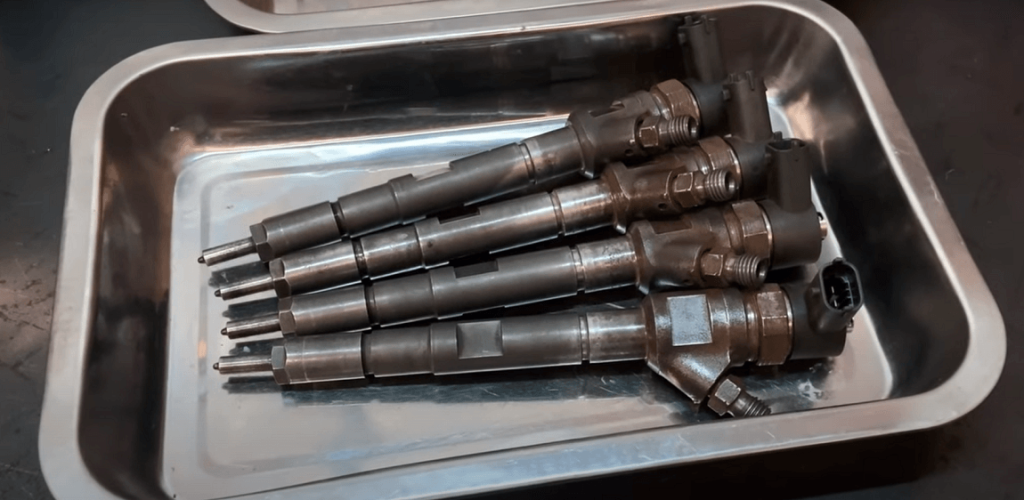
Maintenance Tips For Preventing Fuel Injector Clogging
Fuel injectors play a critical role in the smooth operation of your vehicle’s engine. Over time, these small but essential components can become clogged, leading to decreased performance and potential engine issues. Fortunately, with regular maintenance and a few helpful tips, you can keep your fuel injectors clean and your vehicle running at its best.
Here are some maintenance tips for preventing fuel injector clogging:
The Importance Of Using High-Quality Fuel And Filters:
- Use high-quality fuel: The fuel you choose can have a significant impact on the cleanliness of your fuel injectors. Opt for reputable brands that prioritize fuel quality. This helps minimize the presence of impurities that can clog your injectors.
- Replace filters regularly: Fuel filters are designed to catch debris and contaminants before they reach your fuel injectors. Replace them according to your vehicle manufacturer’s recommended schedule to ensure optimal filtration and prevent clogging.
Regular Maintenance Schedule For Fuel Injector Cleaning:
- Follow manufacturer recommendations: Consult your vehicle owner’s manual to determine the recommended interval for fuel injector cleaning. Adhering to this schedule can help prevent clogs and maintain optimal injector performance.
- Consider professional cleaning: For older vehicles or those that have experienced fuel system issues, professional fuel injector cleaning may be necessary. This specialized service can help remove stubborn deposits and restore injector functionality.
Tips For Keeping Your Fuel System Clean And Efficient:
- Use fuel system cleaners: Periodically using fuel system cleaners can help prevent fuel injector clogs by removing deposits and carbon buildup. Look for products that are compatible with your fuel system and follow the instructions for proper usage.
- Drive regularly: Regular use of your vehicle helps prevent fuel from sitting stagnant in the system, reducing the likelihood of clogs. If your car is not driven frequently, consider taking it for short drives to keep the fuel system functioning optimally.
- Avoid running low on fuel: Running your vehicle with low fuel levels can increase the risk of sediment and impurities being pulled into the system. Aim to maintain a quarter tank or more to minimize the chances of clogs.
- Keep up with engine tune-ups: Regular engine tune-ups and maintenance can help keep your entire fuel system in optimal condition. Addressing issues promptly can prevent fuel injector problems and keep your vehicle running smoothly.
By following these maintenance tips, you can keep your fuel injectors clean and prevent clogs that can impact engine performance. Remember to use high-quality fuel, replace filters regularly, adhere to recommended cleaning schedules, and implement preventative measures to keep your fuel system clean and efficient.
Taking these steps will help ensure a well-maintained fuel injection system and a reliable, high-performing vehicle.
Troubleshooting Fuel Injector Issues
Is your vehicle showing signs of poor fuel efficiency, rough idling, or engine misfires? These could be indicators of fuel injector problems. Fuel injectors play a crucial role in delivering fuel to the engine, so it’s important to address any issues promptly to prevent more severe damage.
In this section, we will explore common fuel injector problems and their causes, learn how to diagnose fuel injector issues, and understand what steps to take when fuel injector cleaning doesn’t solve the problem.
Common Fuel Injector Problems And Their Causes:
- Clogging: Over time, fuel injectors can become clogged due to carbon buildup, dirt, or debris. This can restrict fuel flow and lead to poor engine performance. Causes of clogging include low-quality fuel, lack of regular maintenance, or driving in dusty environments.
- Leaking: Fuel injector leaks can occur due to damaged o-rings or seals. Leaking injectors can cause fuel to seep into the engine or leak externally, resulting in fuel odor, increased fuel consumption, or even fire hazards.
- Electrical issues: Faulty wiring, damaged connectors, or problems with the injector’s electrical circuit can lead to injector misfires or erratic fuel delivery.
- Poor atomization: Fuel injectors should deliver a fine spray of fuel for optimal combustion. If the injector’s spray pattern is disrupted or the fuel droplets are too large, it can result in incomplete combustion, decreased power, and increased emissions.
How To Diagnose Fuel Injector Issues:
To properly diagnose fuel injector problems, follow these steps:
- Visual inspection: Examine the fuel injectors for any signs of leakage, clogging, or physical damage.
- Listen for abnormal sounds: Use a stethoscope to listen for ticking or clicking sounds near the fuel injectors while the engine is running. This can indicate injector issues.
- Fuel pressure test: Measure the fuel pressure at the fuel rail to check if it is within the manufacturer’s specifications. Low or fluctuating fuel pressure may indicate a problem with the fuel injectors.
- Cylinder balance test: Perform a cylinder balance test to identify any misfiring or underperforming cylinders, which could be caused by faulty injectors.
- Use diagnostic tools: Modern vehicles often have onboard diagnostic systems that can provide valuable insights into injector performance. Scan the vehicle’s computer system for error codes or performance data related to the fuel injectors.
Steps To Take When Fuel Injector Cleaning Doesn’T Solve The Problem:
Although fuel injector cleaning can often resolve common injector issues, there are instances when it may not be sufficient. If you’ve already attempted cleaning the injectors and are still experiencing problems, consider the following steps:
- Seek professional assistance: Consult a qualified mechanic or automotive technician who can conduct a thorough inspection and diagnosis of the fuel injectors.
- Consider injector replacement: In some cases, fuel injectors may be too severely damaged or clogged to be effectively cleaned. Replacing the injectors may be necessary to restore proper engine performance.
- Address underlying causes: If the fuel injectors are repeatedly experiencing issues, it’s important to identify and resolve any underlying causes. Regularly using high-quality fuel, performing routine maintenance, and addressing any engine issues promptly can help prevent future injector problems.
Understanding common fuel injector problems, knowing how to diagnose issues, and taking appropriate steps when cleaning doesn’t solve the problem will help ensure your vehicle maintains optimal performance. By addressing fuel injector problems promptly, you can prevent further damage, improve fuel efficiency, and enjoy a smoother driving expe
Can I clean fuel injectors without removing them?
Yes, there are various methods available to clean fuel injectors without removing them from the engine. These methods include using fuel injector cleaner additives, on-vehicle cleaning kits, and off-vehicle cleaning techniques.
What are the benefits of cleaning fuel injectors?
Cleaning fuel injectors help improve engine performance, enhance fuel efficiency, reduce emissions, and prevent potential issues like rough idling, misfires, and decreased acceleration.
Can I perform fuel injector cleaning myself, or should I seek professional services?
Fuel injector cleaning can be done by DIY enthusiasts, following proper guidelines and safety precautions. However, if you’re unsure or uncomfortable with the process, it’s recommended to seek professional fuel injector cleaning services for optimal results.
Conclusion
Maintaining clean fuel injectors is crucial for the optimal performance of your vehicle. By following the step-by-step guide in this blog post, you can effectively clean your fuel injectors and improve fuel efficiency. Start by purchasing a fuel injector cleaner that is compatible with your vehicle.
Next, locate and remove the fuel injector rail. Use a cleaning kit to flush out any debris or deposits from the injectors. It’s important to be thorough and ensure all injectors are clean. Reassemble the fuel injector rail and test your vehicle to ensure it is running smoothly.
Regularly cleaning your fuel injectors will not only improve engine performance but also extend the lifespan of your vehicle. By dedicating some time and effort, you can save money on repairs and enjoy a smoother driving experience.

